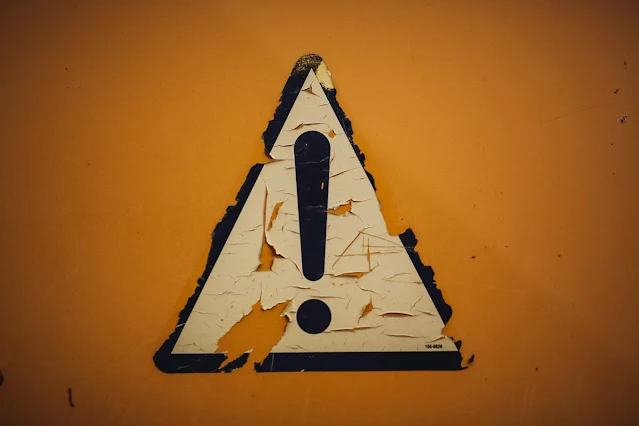
For many people, going to therapy when they have mental health concerns seems like a no-brainer. At worst, they might encounter prohibitive costs or a therapist who doesn't quite get them. But for pedophiles and other minor-attracted people (MAPs), the decision isn't so simple. For them, seeking professional support often means risking their careers, relationships, and wellbeing, even if they've done nothing wrong. This renders therapy's benefits inaccessible to many MAPs.
The dangers MAPs face when seeking professional support stem from various sources, but all are ultimately rooted in stigma. This was documented in a 2018 study, which identified stigma as a significant deterrent to MAPs who are considering therapy. The scope of the problem can be seen in a 2011 survey, which found that 58% of MAPs want professional support but are unwilling to pursue it, with the most common reasons related to risks associated with therapy for MAPs.
Harmful approaches
Unfortunately, some therapists remain unaware of or choose to ignore guidance about supporting minor-attracted people. This leaves them unaware of how to approach treatment after a disclosure of minor attractions and increases the likelihood of them resorting to dangerous techniques. Some utilize treatment methods that are known to be dangerous, perhaps assuming that they are not harmful to MAPs or that the harm is justified.
Conversion therapy
One of the most popular myths about therapy for pedophiles is that the goal should be to change their attractions. Unfortunately, some therapists buy into this and practice conversion therapy on clients who disclose minor attractions, often luring in self-hating MAPs with the promise of a cure. Efforts to "cure" or change attractions have long been recognized as harmful and ineffective when targeted at members of the LGBTQ community, and research suggests that the same is true for MAPs.
Chemical castration
Some therapists may prescribe libido-reducing treatments for MAPs in their care, often due to inaccurate assumptions about their clients' risk of offending. While it is true that chemical castration and similar treatments can be used to treat debilitating sexual urges and similar issues, it is not necessary or beneficial for most MAPs. In addition, these treatments tend to have significant side effects and should not be prescribed to MAPs with high levels of internalized stigma (who may wrongfully believe they will reduce their attractions) or used instead of expert-recommended approaches.
Untrained professionals
The most significant risks MAPs face when seeking therapy are caused by a lack of relevant training among mental health professionals. As a small minority of the population, MAPs are often seen as a niche group that most mental health professionals will never encounter in their work, so most practitioners never receive formal training on treating MAPs, even though 35% of primary care providers experience a disclosure of minor attractions at some point during their careers.
False reports
In many regions, mandatory reporting laws require mental health professionals to report suspected cases of ongoing or imminent abuse to law enforcement. However, due to training shortcomings, many therapists have inaccurate views about the level of risk pedophiles pose to children and may unnecessarily report MAP clients. In one study, 24% of mental health professionals indicated they would report a MAP who had never committed a sexual offense and did not want to do so. In another, 75% wrongly believed that they were required to report MAPs, despite working in a region without mandatory reporting laws.
Therapists rarely face repercussions for filing false reports, but they are far from harmless. Many result in investigations, which may involve police interviewing friends, family members, and coworkers of the MAP, outing them to those people. Due to widespread misconceptions, this can be hugely detrimental to a MAP's social connections and mental health. In addition, because people tend to ignore anti-discrimination laws and policies when MAPs are involved, these damaging effects could include lost career opportunities and an inability to find housing.
Judgemental reactions
- asking invasive, unsolicited questions about a client's sexual history
- assuming, without evidence, that a client has engaged in illegal activities
- expressing disgust verbally or through body language
- using threats or other manipulative tactics to control a client's behavior
This is by no means an exhaustive list, but these and any other judgmental reactions can easily damage the trust between a therapist and their client, degrading the effectiveness of treatment and further damaging the MAP's mental health.
Note that an explanation of mandatory reporting requirements, although potentially jarring, usually reflects a therapist's desire to ensure their client's safety and should not be considered a judgemental reaction.
Unhelpful priorities
Following a disclosure of minor attractions, some therapists may make assumptions about what their MAP client wants or needs to focus on in future sessions. This can result in therapists pressuring clients to focus on treatments intended to prevent them from committing sexual offenses. Although a few MAPs desire and would benefit from this type of treatment, most MAPs never offend, regardless of the treatment (or lack thereof) they receive. Experts warn that programs that imply MAPs need treatment to avoid offending may be counterproductive, potentially resulting in an increased risk of offending.
Ultimately, different MAPs have different treatment needs, some of which may be entirely unrelated to their attractions. A good therapist will work with their client to develop treatment goals that prioritize the client's mental health needs while promoting expert-recommended best practices such as self-acceptance.
Staying safe
MAPs who choose to seek therapy can take several steps to avoid these risks. There are a number of organizations and groups dedicated to providing evidence-based treatment for MAPs or listing mental health professionals who do so. Current and potential therapists who are not known to be safe can be vetted to determine their views on MAPs and their intended approach to treating them. For MAPs who decide that therapy isn't worth the risks, other support options are available.
Click here to download a sharable infographic about this article.





Subscribe